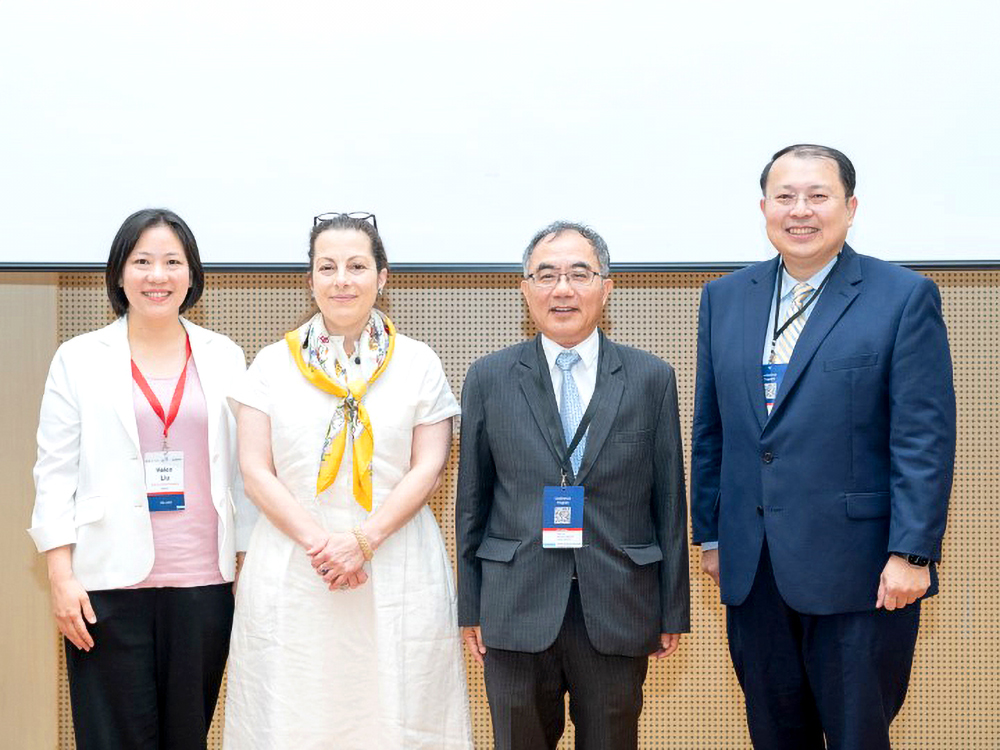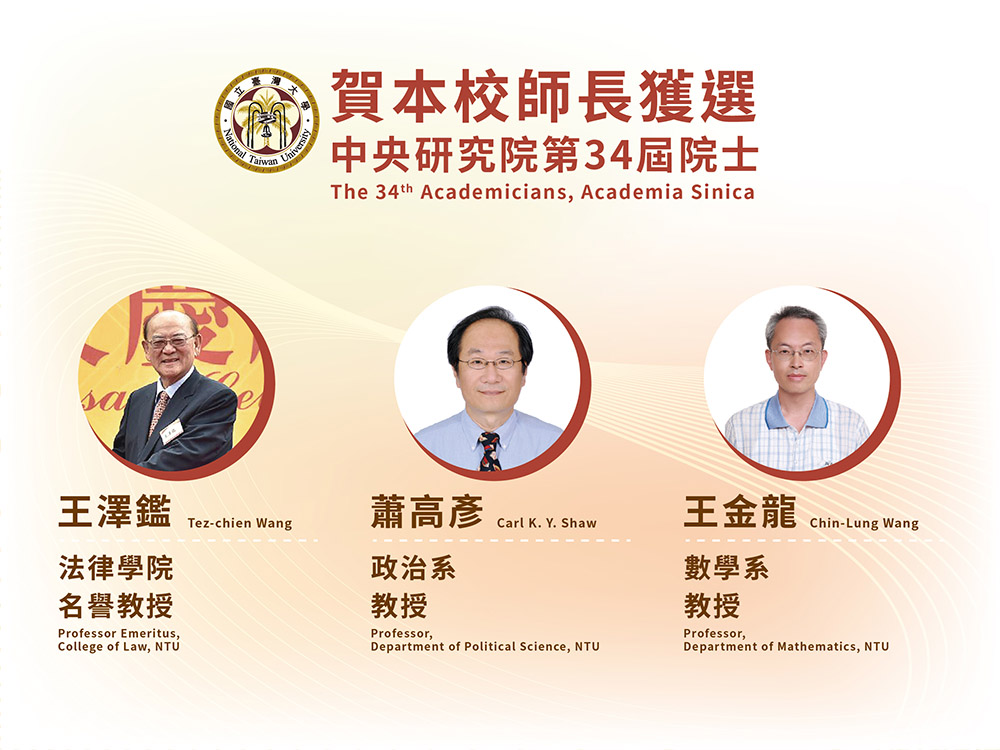
NTU Opening Ceremony: “Where Creativity and Dreams Take Flight”
瀏覽器版本過舊,或未開啟 javascript
請更新瀏覽器或啟用 javascript
Spotlights
Long-term (1994-2019) concentration distribution map of air pollutants in Greater Taipei Area.
The research team led by Professor Yen-Ching Karen Chen from NTU CPH and Dr. Jen-Hao Chen from NTUH.
The association between high-level air pollution exposure and dementia in older adults has been established gradually. However, in many regions, the concentration of air pollutants is not high. Moreover, considering that older adults spend a significant amount of time at home, the impact of dual indoor and outdoor air pollution on dementia needs further clarification. Through interdisciplinary collaboration between the National Taiwan University College of Public Health, National Taiwan University Hospital, College of Bioresources and Agriculture, and College of Science, this study has revealed that long-term exposure to low concentrations of suspended particulate matter (below air quality standards) and poor indoor ventilation significantly increases the risk of cognitive impairment in community-dwelling older adults, which is a characteristic of dementia. The research findings were published in the esteemed journal Environmental Research in February 2023.
Due to the slow progression of dementia, long-term observation is necessary to clarify the relationship between air pollution and cognitive function. With funding support from Taiwan Ministry of Science and Technology, this research is led by Professor Yen-Ching Chen (程藴菁) from the Institute of Epidemiology and Preventive Medicine at the National Taiwan University College of Public Health and Dr. Jen-Hau Chen (陳人豪) from the Division of Geriatrics at National Taiwan University Hospital. In 2011, “Taiwan Initiative for Geriatric Epidemiological Research” was established with the aim of assessing cognitive function in non-demented community-dwelling older adults every two years. The study has since joined several global research alliances, aiming to identify relevant risk factors in the preclinical phase and ultimately prevent the occurrence of dementia in older adults.
Through the collaboration with Professor Hwa-Lung Yu (余化龍) from the Department of Bioenvironmental Systems Engineering, the 14 to 25 years of exposure concentrations of six outdoor air pollutants [fine particulate matter (PM2.5), coarse particulate matter (PM2.5-10) or particulate matter (PM10), ozone (O3), nitrogen dioxide (NO2), sulfur dioxide (SO2), carbon monoxide (CO)] were assessed using Bayesian Maximum Entropy methods for each older adult.
Due to the high correlation among air pollutants, previous studies have typically focused on the effects of only one or a few pollutants on human health. Therefore, through the collaboration with Prof. Jeng-Min Chiou (丘政民) from Institute of Statistics and Data Science, this study, for the first time, proposed a “multi-pollutant (six pollutants)” model to reflect the actual exposure of individuals to multiple pollutants and evaluate their impact on cognitive function. This model provides an important reference for future research and represents a significant breakthrough in the field.
In addition, indoor air pollution encompasses a wide range of pollutants with significant variability, making it challenging to assess. Previous studies are scarce and have primarily focused on exposure to indoor pollutants from combustion sources such as wood or coal. However, older adults spend a considerable amount of time indoors, and most Taiwanese residents use clean fuels like natural gas for cooking, which differs from previous research scenarios. Furthermore, epidemiological studies often involve a larger number of participants (hundreds to thousands), making it difficult to measure indoor air quality in individual households. Therefore, based on the principles of fluid dynamics, this study has developed a "ventilation score" for indoor environments. This score assesses the airflow within indoor spaces based on the degree of window and door opening and the usage of air-circulating equipment. It provides an important alternative indicator for evaluating indoor air quality in future assessments.
The important findings of this study indicates that long-term exposure to low levels of outdoor air pollution and poor indoor air quality increases the risk of cognitive impairment or dementia in older adults. It is hoped that in the future when revising air quality standards, the Environmental Protection Administration in Taiwan will consider the findings of these studies and prioritize indoor air quality to reduce the impact of air pollution on the health of older adults. The research team expresses gratitude for the support from the Ministry of Science and Technology, the College of Public Health at National Taiwan University, the National Taiwan University Hospital, and collaborating faculty from other institutions.
Read the journal article on Environmental Research: https://doi.org/10.1016/j.envres.2023.115483

NTU Opening Ceremony: “Where Creativity and Dreams Take Flight”

Prof. Wei-Shiung Yang wins MOE National Excellent Teacher Award

NTU College of Public Health's Global Health Program Joins the Association of Schools of Public Health in the European Region

NTU hosts a successful dg.o 2024

Congratulations to NTU faculty members elected as 34th AS academicians
Current Spotlights